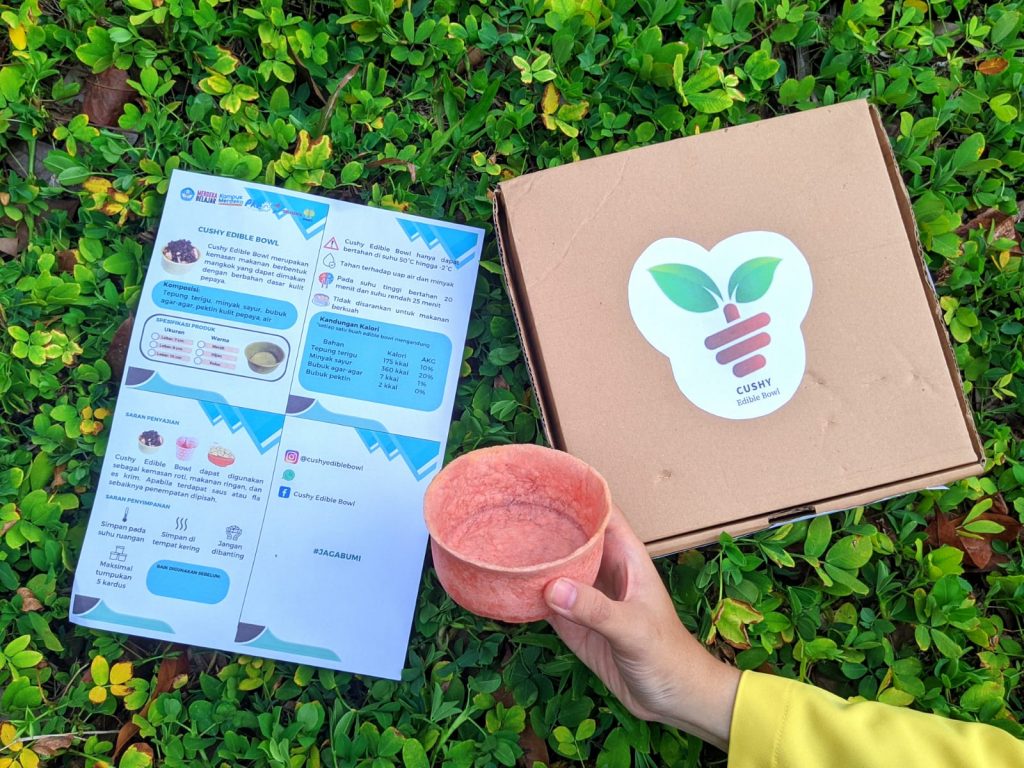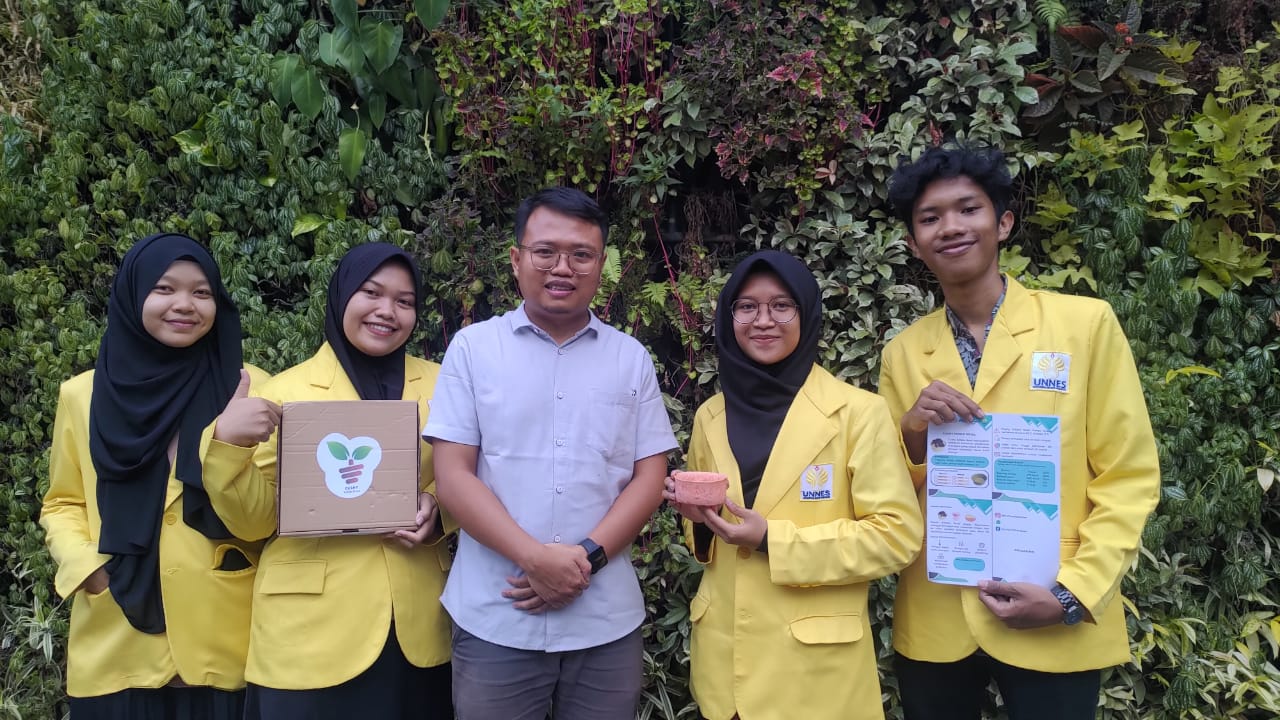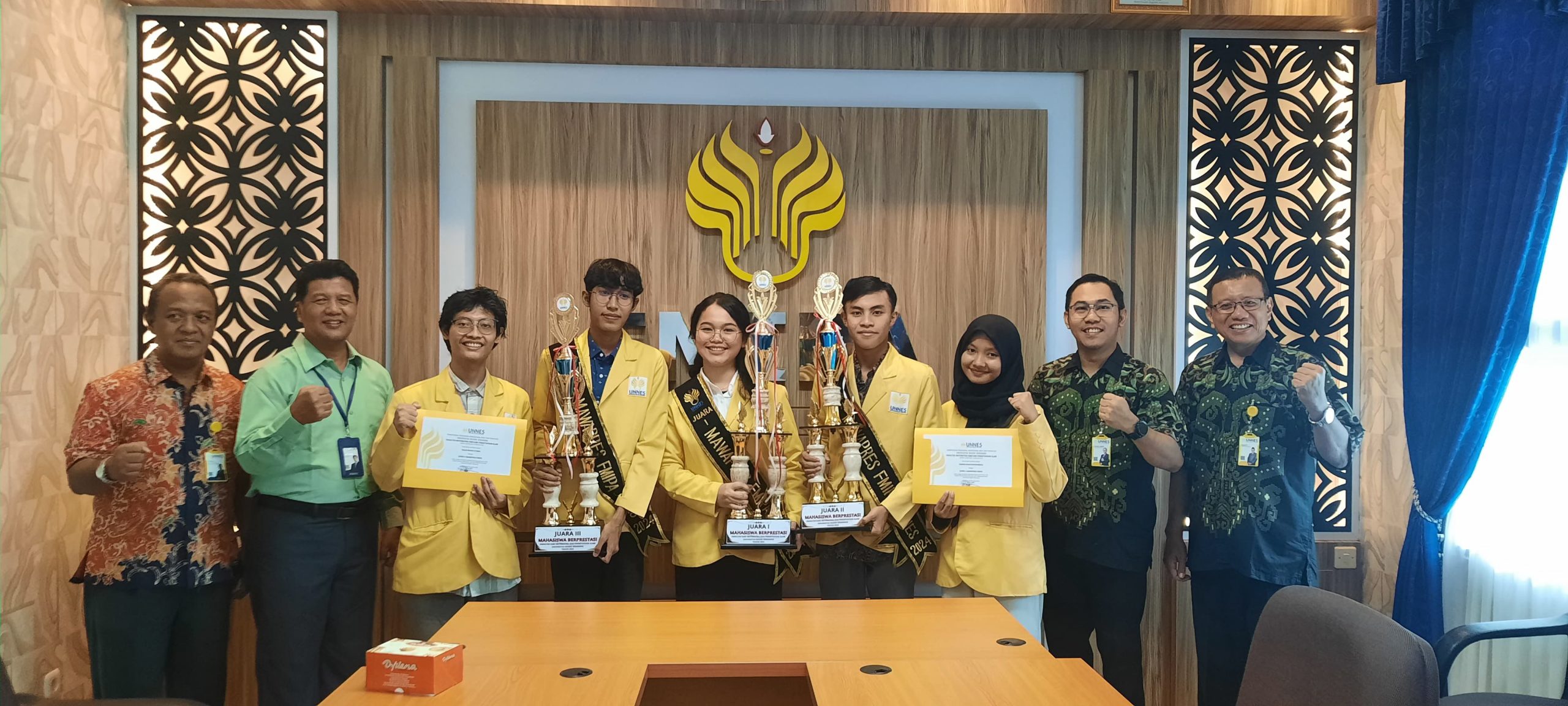A team of UNNES students, including Cahyani Putri Kinasih, Nisfil Amelia Ramadhani, Gilang Syahbananto, and led by Tiara Dwi Wulandari, have created an eco-friendly food packaging alternative called the “Cushy Edible Bowl.” This collaboration between students from the Environmental Science, Environmental Education, and Economics programs aimed to address the growing issue of plastic packaging waste. According to the Central Statistics Agency (BPS), Indonesia is one of the world’s largest producers of plastic waste, generating 64 million tons per year. The trend of single-use food packaging has exacerbated environmental pollution. The Edible Bowl is a bowl-shaped food container that is edible.
Guided by UNNES Environmental Science lecturer, Prasetyo Listiaji, S.Pd., M.Sc., the team secured funding from the Ministry of Education, Culture, Research, and Technology’s Entrepreneurship category under the title “Cushy Edible Bowl: Environmentally Friendly Food Packaging Made from Papaya Skin to Address the Plastic Waste Issue in Indonesia.” Tiara, the team leader, explained that Cushy Edible Bowl offers a solution to the current problem. “Currently, only the flesh of the papaya is utilized, while the skin is often discarded. However, papaya skin contains various beneficial compounds for the body,” she stated. Papaya skin contains vitamin A, B-complex vitamins, vitamin E, folate, potassium, calcium, and antioxidants that provide electrons and end free radical chain reactions. Furthermore, papaya skin can be used to create edible plastic packaging, optimizing the use of papaya skin and addressing the plastic waste problem in Indonesia.

The team collects papaya skin waste from food industries and fresh fruit vendors in the Semarang region. The high demand for papaya skin waste for the production of edible bowls benefits industry players, as they no longer need to dispose of the papaya skin waste generated. This project began with the PKM-K program and successfully partnered with food industry centers and fresh fruit vendors around UNNES as the primary distributors of papaya skin. Cushy Edible Bowls can be ordered for Rp40,000 per box through Shopee, Instagram, Facebook, or WhatsApp using this link: https://linktr.ee/CushyEdibleBowl. Tiara and her team are confident that this initiative will reach the break-even point (BEP) and turn a profit by October.
This program is ongoing and includes several stages: preparation, production, sales, and evaluation over five months until October. Following this, the team will prepare for the Assessment of PKM Implementation Progress (PKP2) from the Ministry of Education and Culture. Tiara and her team hope to qualify for the National Student Scientific Week (PIMNAS) this year. She added, “Through this PKM, we hope to contribute by educating the public on how to address the plastic waste problem while enhancing entrepreneurial skills. Myself, all team members, and our supervising lecturers also hope to have the opportunity to participate in this year’s National Student Scientific Week (PIMNAS).”





